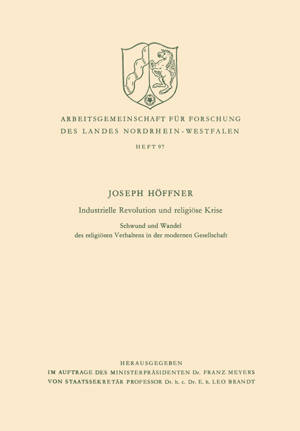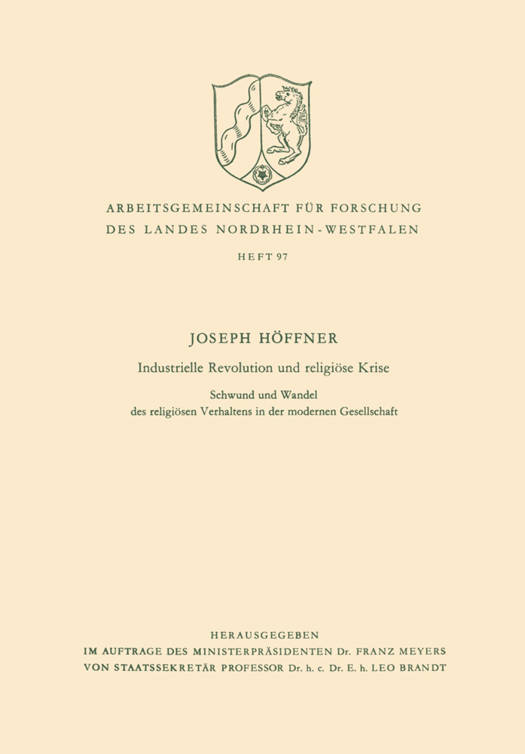
Je cadeautjes zeker op tijd in huis hebben voor de feestdagen? Kom langs in onze winkels en vind het perfecte geschenk!
- Afhalen na 1 uur in een winkel met voorraad
- Gratis thuislevering in België vanaf € 30
- Ruim aanbod met 7 miljoen producten
Je cadeautjes zeker op tijd in huis hebben voor de feestdagen? Kom langs in onze winkels en vind het perfecte geschenk!
- Afhalen na 1 uur in een winkel met voorraad
- Gratis thuislevering in België vanaf € 30
- Ruim aanbod met 7 miljoen producten
Zoeken
Industrielle Revolution Und Religiöse Krise
Schwund Und Wandel Des Religiösen Verhaltens in Der Modernen Gesellschaft
Joseph Höffner
€ 54,45
+ 108 punten
Omschrijving
Modern civilization is characteristically industrial and technical. Spreading as it has from Europe throughout the world, it has brought continual religious crises in its wake. The present study is confined to an examination of the religious conduct of Catholics in the industrial society, and is based on recent religio-sociological studies carried out in Germany and France. The following state of affairs is shown to exist 1) In large cities and industrial districts the number of practising Catholics is well below the national average. 2) It seems probable that the domestic environment has a greater effect on religious conduct than the work environment. 3) Women and children generally maintain relatively regular church attendance, while in the case of men religious apathy becomes apparent soon after leaving school, and reaches a peak in the years of maturity. 4) Analysis of church attendances shows that the workers are particularly affected by the religious crises. 5) The effectiveness of education and training in maintaining religious interest was demonstrated. Any attempt to analyse the religious crisis must take into consideration the fact that the subjective factors, i. e. failure of Christians themselves and attacks on Christianity by antagonists, are not in themselves a sufficient explanation. A vital part is also played by the objective factors associated with the social environment of the industrial age; the environment is predominantly secular and tends towards a basic pluralism of out- look.
Specificaties
Betrokkenen
- Auteur(s):
- Uitgeverij:
Inhoud
- Aantal bladzijden:
- 75
- Taal:
- Duits
- Reeks:
- Reeksnummer:
- nr. 97
Eigenschappen
- Productcode (EAN):
- 9783663030027
- Verschijningsdatum:
- 1/01/1961
- Uitvoering:
- Paperback
- Formaat:
- Trade paperback (VS)
- Afmetingen:
- 170 mm x 244 mm
- Gewicht:
- 136 g

Alleen bij Standaard Boekhandel
+ 108 punten op je klantenkaart van Standaard Boekhandel
Beoordelingen
We publiceren alleen reviews die voldoen aan de voorwaarden voor reviews. Bekijk onze voorwaarden voor reviews.









